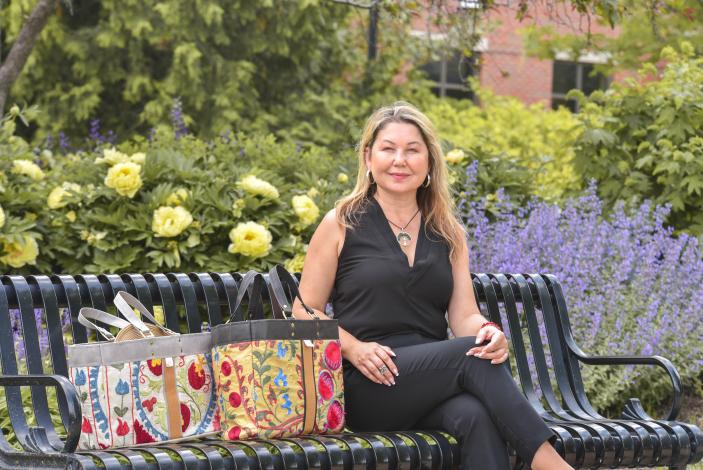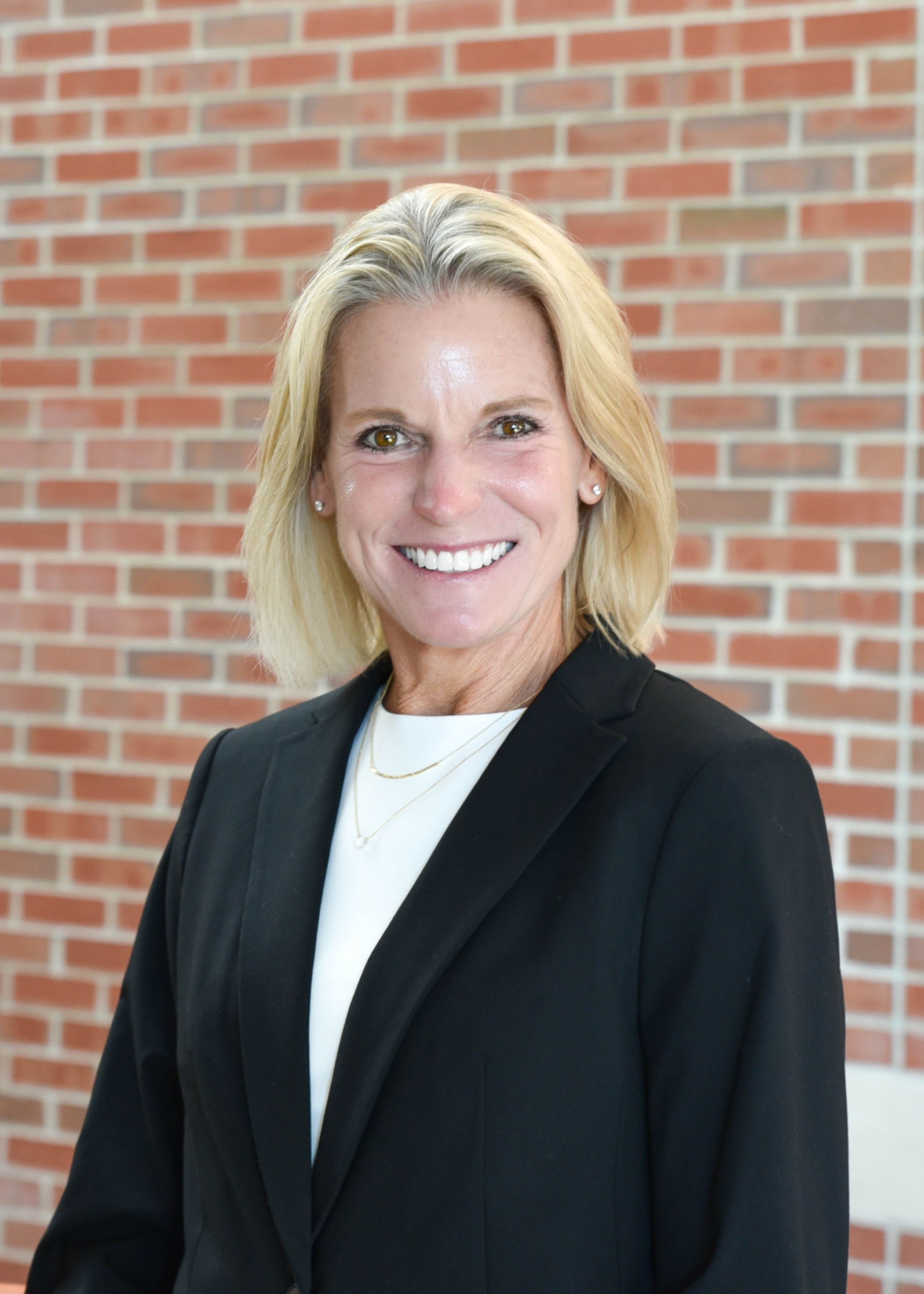
Uzbekistan Professor Shares Expertise, Learns U.S. Culture at Mizzou

Bringing different backgrounds and thoughts together can yield some astonishing results.
Since January, Laylo Yakhshiboeva, a professor of Management and Entrepreneurship at the Tashkent State University of Economics in Uzbekistan, was embedded in the Center for Entrepreneurship and Innovation in the Trulaske College of Business (TCOB).
The visiting scholar spent the spring semester at Mizzou learning about cultural differences and similarities between the U.S. and her country while also sharing her entrepreneurial expertise.
Scott Christianson, director of the center who sponsored Yakhshiboeva at Mizzou, said visiting professors bring fresh energy and expertise that ripples through almost every part of a university.
“The campus consensus is that Laylo's visit brought fresh scholarship to Mizzou, and we are excited to collaborate with her in the future,” he said.
Chosen from more than 700 candidates in the annual Faculty Enrichment Program organized by the American Council and the Ministry of Higher Education in Uzbekistan, Yakhshiboeva said the experience has been exceptional.
“America is a totally different culture from other places I’ve visited,” she said. “We are far from each other with different backgrounds, but this makes people more innovative and creative when they come together. Our values are the same because we are human.”
During her Mizzou visit, which ended May 19, Yakhshiboeva:
- Made presentations on Uzbek culture, entrepreneurship and economics, both to CAFNR faculty and to Trulaske faculty, staff and students during the college's International Week activities;
- Audited courses in entrepreneurship, strategic communications, business and design thinking; and
- Co-hosted a presentation on sustainable practices and the economics of sustainability using the En-roads simulator and completed training to become an En-roads Climate Ambassador.
Her insight benefited the larger entrepreneurial community when she presented her business idea at 1 Million Cups on April 14, and she became an active member of the local 1 Million Cups community.
Yakhshiboeva also presented research on economic development in rural Uzbekistan at the California Entrepreneurship Educators Conference in San Diego on April 25-26.
“Our students gained from hearing Yakhshiboeva’s new perspectives and benefitted directly from her mentoring,” Christianson said. “Hosting an international peer raises Mizzou’s profile, deepens community and cultural engagement and helped connect local business leaders, faculty and residents to Central Asian heritage and practical climate solutions,” he added.

Developing a Joint Project
An added bonus of Yakhshiboeva’s visit has been the opportunity to collaborate with a fellow entrepreneur, TCOB Associate Professor Stacie Kane, who teaches entrepreneurship at Mizzou.
The two combined Kane’s line of washable paper bags with brightly colored embroidered Uzbek fabrics and patterns, resulting in an enhanced fashionable bag collection.
“I found out that Stacie’s an entrepreneur who makes these amazing, sustainable bags in addition to her teaching job,” Yakhshiboeva said. “It was very appealing for me so I brought some bright, colorful handmade embroideries with me and thought we could try something.”
Kane said her connection with Yakhshiboeva was almost instant, and she loved the collaboration.
“It’s just a good story because my product really matches hers in regard to empowering women and doing something good for society as well as the environment,” Kane said. “I think the collaboration we've made is going to be a long-time relationship for sure.”
Although she had already researched how to get her bags produced, Kane has faced roadblocks – first because of Covid and now proposed tariffs on countries where she could get the best rates for mass production.
Yakhshiboeva suggested exploring her connections through rural Uzbekistan women, who can benefit from the independence the work would add.
“Some of them have little kids or are widows who have no opportunity to go somewhere to work,” she said. “It could be another added value to our project and would empower women in that region.”
The collaboration has helped both women’s projects. “I wanted to calm down my items because they are too colorful, and I think I brought some color to Stacie's bags,” Yakhshiboeva said. “Different people in our society boost creativity. When you see her work and my work, it's two totally different things. But when we bring it together, it's amazing.”
Yakhshiboeva introduced the alliance at Mizzou’s Culture Couture fashion show sponsored by the International Department and was joined by Kane.
“My message is that entrepreneurship is actually a circle of knowledge, but we are more into mindset to build skills,” Yakhshiboeva said. “Even if you are an educator, you are a student of entrepreneurship; it's all about mindset. And you can use the skills anywhere in your life.”
Lessons to Take Home
Yakhshiboeva said she has gained great insight during her visit. Her perceptions about the U.S. – based on movies, television shows and the media – have been restructured, especially as it relates to students.
Although initially shy, she found Mizzou students friendly, well behaved and respectful, and they proved to be outspoken and creative with unique ideas, she said.
“In American culture, nobody criticizes you for your opinion or idea,” Yakhshiboeva said. “That's why I believe the U.S. stands out as a leading country in innovation. When I observe the wide range of medical technologies, applications, and extensive production lines for recycled plastic products, that’s the kind of culture I aspire to bring back home.
“Americans just say, ‘Why not? Let's try it.’ That's a great culture,” she added.
While this was the first time the Center for Entrepreneurship and Innovation hosted a visiting entrepreneurship fellow, Christianson said he hopes it will not be the last.
“Laylo’s semester was very much a pilot — and a resounding success,” he said. “Seeing how quickly her presence amplified our courses, research collaborations and community outreach convinced me that visiting scholars can be a high‑impact, low‑cost addition to our program portfolio.”